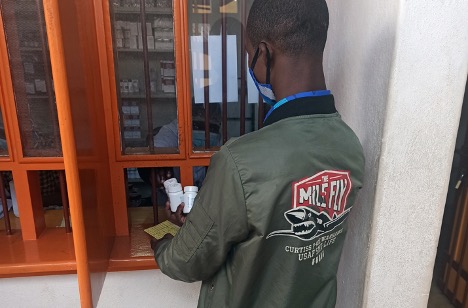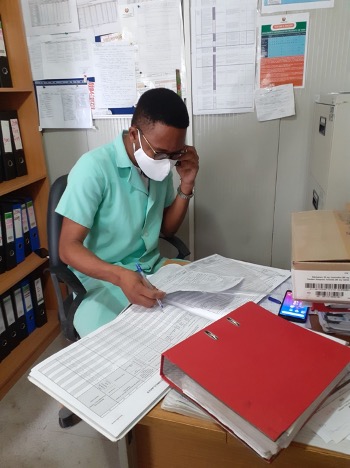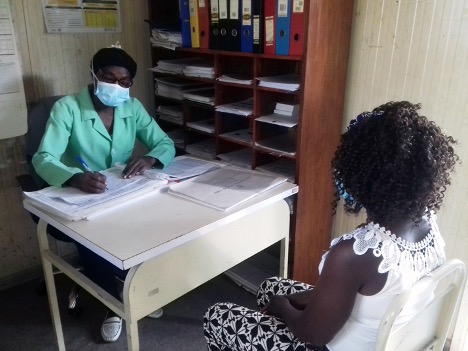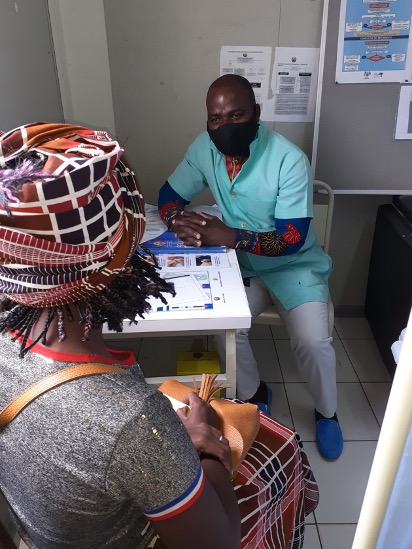By the end of June 2020, 185,849 patients on combination antiretroviral therapy (ART) were receiving their medication refills on a quarterly basis, commonly referred to as three-month drug dispensation (3MDD). This number represents an impressive 76% of all patients currently receiving ART. This is more than a three-fold increase from the previous reporting period (54,282 patients at the end of COP19 Q2) - the largest proportional increase FGH supported health facilities have ever registered during any reporting period.

Such an achievement is the result of a specific set of measures implemented in response to the COVID-19 pandemic, including the relaxation of the eligibility criteria for three-month ART dispensation by the Mozambican Ministry of Health (MOH). Three-month ART dispensation can help mitigate the spread of COVID-19 by markedly reducing the total number of patients visiting health facilities and avoiding large numbers of patients queued up in congested waiting areas.
The modifications to three-month ART dispensation eligibility criteria enabled a larger percentage of patients currently receiving ART to participate in this intervention. All ART-treated patients qualified for three-month ART dispensation, with the following exclusions: children less than two years of age, children and adults during their first three months on ART, lactating women during the three-month period after birth, TB/HIV co-infected patients, and patients in need of more regular clinical follow-up due to other underlying health conditions.
FGH led the operationalization of these guidelines and the implementation of changes in patient flow, for example, the utilization of one-stop models to facilitate access to ART while avoiding long queues at public pharmacies. These interventions accommodate changes in guidelines within supported health facilities. FGH provides active mentoring to providers to improve implementation of the guidelines. Daily tracking of the inclusion of patients on three-month ART dispensation was also implemented in all 144 FGH supported health facilities with the timely identification of solutions at underperforming sites.
FGH developed an informational radio spot promoting three-month ART dispensation and encouraging patients to adhere to ART as a way to prevent potential serious morbidity and mortality caused by COVID-19 infection. The radio spot was approved by MOH and the provincial health authorities and was aired by all community radio stations in prioritized districts.

In mid-March 2020, following worldwide recommendations of social distancing and travel restrictions as a result of the COVID-19 pandemic, FGH instated an institutional travel ban, suspending all travel between its headquarters in Maputo and Quelimane, where programmatic operations take place. Travel was also markedly reduced between FGH headquarters in Quelimane and rural supported districts and health facilities. These restrictions complicated the ability of the central and provincial technical teams to provide their quality supervision and mentoring to the district teams. FGH technical teams overcame these challenges with improvisation and resiliency, maintaining consistent communication with district and health facility-based personnel through regular Zoom calls. Teams shared and discussed data regarding numbers of patients being transitioned to three-month dispensation and interventions were implemented in real time, as needed, to ensure the rapid scale-up of this important differentiated model of service delivery.

In early April 2020, MOH provided additional guidance related to the continuity of HIV services within the context of the COVID-19 pandemic, which included the temporary suspension of all community health testing and counseling, all preventive and defaulter contact tracing home visits for HIV-positive pregnant and lactating women, children and adults in HIV care and treatment, and all differentiated service delivery models that involved patient group meetings and gatherings including adherence clubs and mobile brigades for ART distribution. While the suspension of these activities posed a great challenge to the program, rapidly modifying the eligibility criteria and expanding the implementation of three month ART drug dispensation was able to mitigate potentially poor outcomes.

By successfully and rapidly implementing three month ART drug dispensation for eligible patients within the 144 FGH supported health facilities, at the end of the reporting period (Q3), a total of 245,515 patients were currently receiving ART, which corresponds to 75% of annual target achievement in terms of performance for this indicator. This achievement included an impressive net increase of 16,006 patients (11,252 patients newly initiating ART during this reporting period coupled with 4,754 patients re-engaging in care), corresponding to a 7% increase when compared to the total number of persons currently receiving ART at the end of the previous reporting period (Q2).
Lastly, the proportion of eligible ART-treated persons receiving their ART via three-monthly dispensation recently surpassed 80%, so there is still some room for expansion, and FGH will continue to track progress and rapidly implement interventions in order to take this to full scale, ensuring continuity of services and patient safety in the midst of the COVID-19 pandemic.
- Implementation of a Standardized Operating Procedure Successfully Improved the Receipt of Viral Load Results Among ART-Treated Eligible Adults and Children Receiving Longitudinal HIV Care at the Namacurra Sede in Zambézia Province, Mozambique
- Clinical Advisor’s Commitment Leads to a More Than Threefold Increase in Patients Completing Tuberculosis Preventive Therapy (TPT)